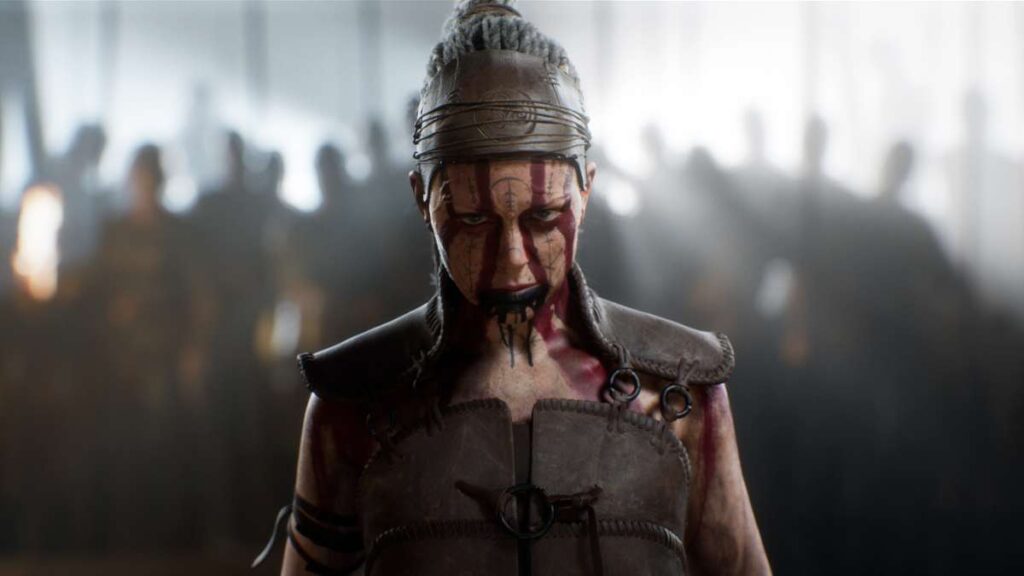Senua’s Saga: Hellblade 2 stands out for its breathtaking visuals and outstanding performances, but it falls short in terms of gameplay enjoyment.
I wasn’t a big fan of the first Hellblade, despite its beauty and strong acting. The puzzles and gameplay didn’t resonate with me. Approaching the sequel with an open mind, I hoped for improvements and evolution, but instead, I found that some aspects had even regressed. I realize now that this style of storytelling just isn’t for me, though the sequel retains many of the first game’s strengths.

Visuals and Performance: Hellblade 2 is visually stunning. The Icelandic landscapes, subterranean caves, ravaged villages, and ritualistic death pits are some of the best scenes I’ve encountered in gaming. Achieving this level of detail on a Series X, rather than a high-end PC running Cyberpunk with path tracing, is impressive. The environmental detail is unparalleled, and it will undoubtedly leave you breathless multiple times.
The acting is equally exceptional, with Melina Juergens delivering another powerful performance that’s sure to be remembered during award season. Chris O’Reilly’s portrayal of the slaver Thórgestr is also noteworthy.
Cinematic Focus: Hellblade 2 places a relentless emphasis on being “cinematic,” far surpassing games like Uncharted and The Last of Us. There’s no UI, no upgrades, and very limited exploration—just a direct march through the story. This cinematic approach extends to combat, with dynamic sequences where enemies crash into you and each other between player-controlled segments. Many battles feel like one-take John Wick-style Viking fights, which is a neat touch.
Gameplay Experience: However, I didn’t find this approach enjoyable as a game. The term “walking simulator” often used for indie games is quite fitting here. Large portions of the game involve simply holding down the forward button or occasionally running. While the landscapes are beautiful, this repetitive gameplay becomes tiresome, especially in a game as short as this. The lengthy cave sequence with a few puzzles and the foggy woods where you just walk for about 20 minutes were particularly tedious.
The game lasts about seven hours, which Ninja Theory is unapologetic about. The short length isn’t the issue; it’s the pacing. Long, dragging sequences are followed by a sudden sprint near the end that feels underdeveloped. I wish I’d spent less time in the caves, skipped the woods entirely, and seen more development in the final area.
Story and Voices: This time, the story feels less urgent. Unlike Senua’s personal tragedy in the first game, she’s now helping strangers and her unseen “people” by slaying giants. By the end, I understood the connection to her own story, but it lacked the deeply personal hook of the first game.
The voices in Senua’s head, meant to convey mental illness, quickly became intolerable for me. The non-stop narration rarely added anything useful or interesting, and I grew tired of the repetitive, bickering voices. While this might be the point, it made for a deeply unpleasant experience.
Linear Gameplay and Combat: The game’s linear, on-the-rails design allows it to look amazing but limits exploration. There’s essentially one path to follow, with only occasional short detours to find secret bits of the story.
Combat, despite its dynamic presentation, is quite basic. You have a heavy attack, light attack, dodge, and parry. Enemies typically have just two sets of moves, making them easy to counter. The process for every enemy is the same: block, dodge, hit to build up your mirror, then use slo-mo for an almost guaranteed kill. Despite its cinematic feel, the combat lacks depth.
Puzzles: Some puzzles, like those that involve flipping parts of the room upside down, are interesting. However, the return of the “find the shape in the landscape” puzzles from the first game was less enjoyable, often leading to frustrating encounters with invisible boundaries. There are only a few types of puzzles, and only one felt somewhat interesting.
Conclusion: While I enjoyed certain parts of Hellblade 2, especially some environmental and musical sequences that created a crushing, horrifying, intense atmosphere, as a game it didn’t captivate me. The stunning visuals and powerful performances are memorable, but the overall gameplay experience wasn’t enjoyable for me.